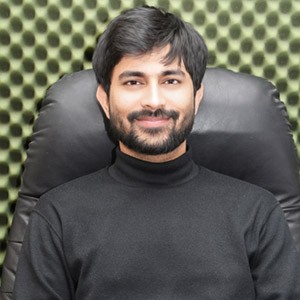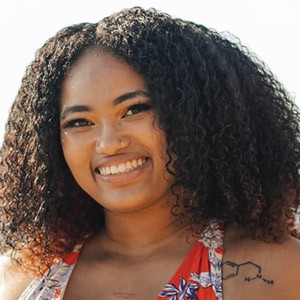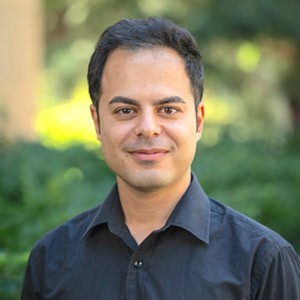MENDEL POST-DOCTORAL FELLOWS
The College of Liberal Arts and Sciences supports three postdoctoral fellows who contribute to developing and teaching Mendel Science Experience (MSE)—specialized courses designed for non-science majors as part of the College's core curriculum.
MSE postdoctoral fellows are appointed for two years, with an option to renew for a third year, and are mentored by a tenured or tenure-track Villanova faculty member. Half of their time during the academic year is dedicated to supporting faculty in teaching the MSE courses. These core science courses are thematic (i.e., not traditional survey courses) and are associated with a complementary thematic lab that is linked directly to the lecture section. Although MSE courses are topically diverse, they share a common approach—incorporating four critical components in a meaningful way: problem solving, laboratory/field experience, technology and quantitative tools, and interdisciplinary understanding.
MSE postdoctoral fellows also conduct research in their faculty mentor's lab. Our faculty expect them to demonstrate research productivity, which, when coupled with their teaching experience, will prepare them for academic careers at institutions that value undergraduate education.
CURRENT MSE FELLOWS
Tilak Pawar, PhD, Astrophysics and Planetary Science

Tilak Pawar, PhD, joined Dr. Andrej Prša's research group at Villanova University in 2025 after earning his PhD from the Nicolaus Copernicus Astronomical Center in Poland. His research focuses on eclipsing binary stars—stellar pairs whose mutual eclipses enable precise measurements of stellar masses and radii unattainable for single stars. During his PhD, he conducted detailed studies of select systems to understand how stellar interactions shape their evolution.
At Villanova, he is scaling his search to vet more than 150,000 eclipsing binary candidates from NASA's TESS data combining varied statistical techniques. The resulting catalog will serve as a community resource for exploring diverse binary systems, each representing different physical processes, structural configurations, and evolutionary pathways crucial for testing stellar evolution models.
Ashley Williams, PhD, Psychological and Brain Sciences

Ashley Williams, PhD, joined the laboratory of Irene Kan, PhD, in the Department of Psychological and Brain Sciences in August 2025. She completed her BS in Neuroscience at Duke University in 2016, followed by a PhD in Neuroscience at the University of California, Davis in 2023. Before joining the lab at Villanova, she completed a post-doctoral position at the University of Pennsylvania in the Psychology Department. Using a combination of behavioral, neuroimaging and computational techniques, Dr. Williams' research has spanned a variety of cognitive processes, such as working memory, episodic memory and emotion recognition, with a focus on factors that may affect these processes, as with stress, psychosis and aging. At Villanova, Dr. Williams utilizes a large, diverse database to investigate how variations in demographics, like socio-economic status, may moderate cognitive functioning, such as emotion recognition and sleep-related cognitive deficits.
Behzad Tahmasebzadeh, PhD, Astrophysics and Planetary Science

Behzad Tahmasebzadeh, PhD, is a postdoctoral fellow and instructor in the Department of Astrophysics and Planetary Science at Villanova University. Before joining Villanova, Dr. Tahmasebzadeh earned his PhD from the Shanghai Astronomical Observatory in 2022 and was a postdoctoral researcher at the University of Michigan.
Dr. Tahmasebzadeh's research explores how galaxies form and evolve by combining dynamical modeling with integral-field spectroscopic observations from facilities such as NASA’s James Webb Space Telescope. He develops and applies advanced numerical techniques to uncover the mass distributions of galaxies—including their stars, dark matter and central black holes. His recent works produced the first orbit-based dynamical model of an external barred galaxy and revealed over-massive black holes in some of the smallest known galaxies. At Villanova, he is working with Kelly Hambleton Prša, PhD, to expand his research into time-domain astronomy, using NASA’s Kepler and TESS data with machine learning techniques to study the Blazhko effect—the mysterious brightness modulation seen in RR Lyrae and Cepheid variable stars.
Brittany Coppinger, PhD
Nikole Giovannone, PhD
Anita Prapotnik Brdnik, PhD
